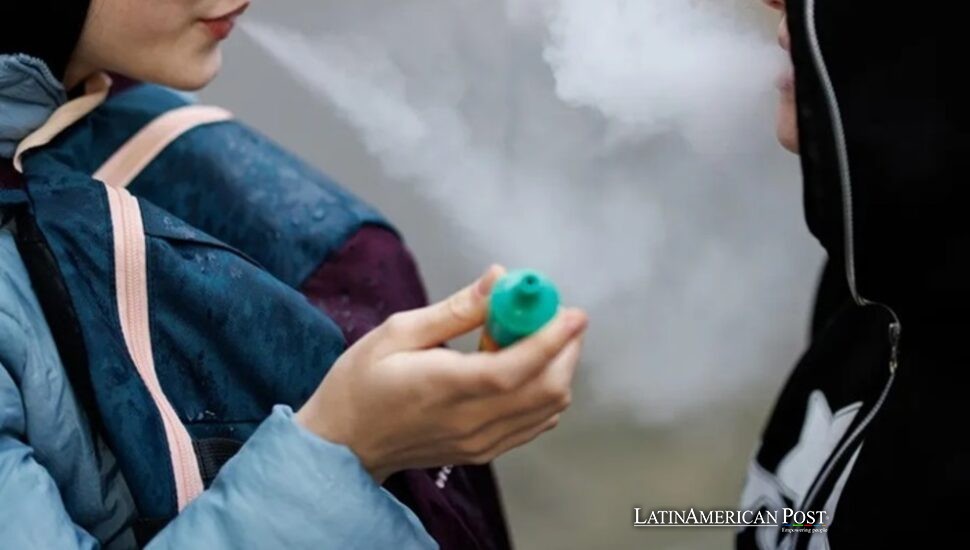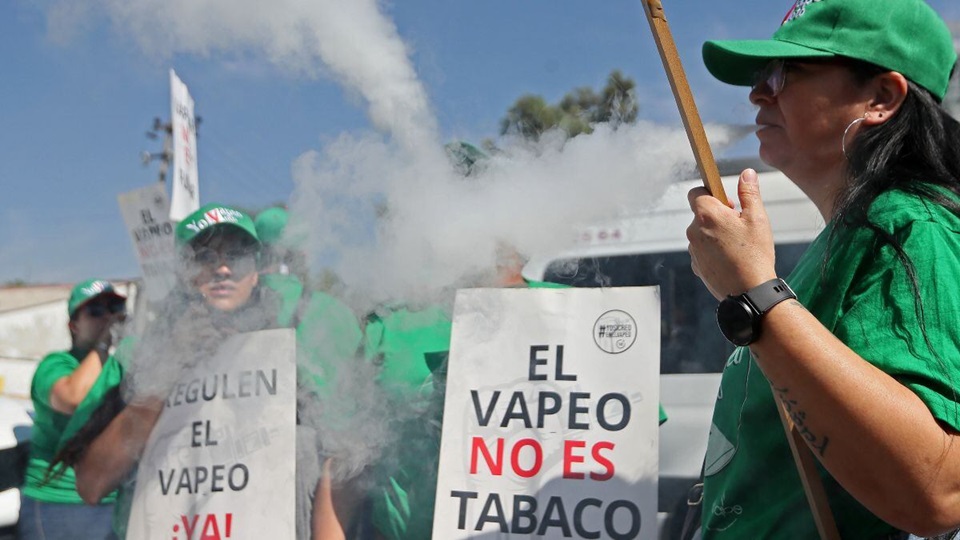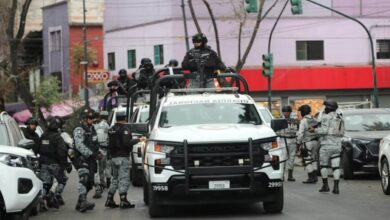Mexico’s Vape Ban Is the Law—But the Smoke Hasn’t Cleared

Mexico’s sweeping constitutional ban on e-cigarettes was meant to protect youth from nicotine addiction. Instead, it’s left a power vacuum that criminalizes users, emboldens cartels, and allows police to exploit a law without rules—and a public without protection.
A Ban with No Blueprint
In December, Mexican lawmakers made history. With President Andrés Manuel López Obrador’s backing, Congress amended Article 4 of the Constitution to ban e-cigarettes, vape pens, and “analogous devices”—an unprecedented move that no other nation had enshrined so permanently in its charter.
It was sold as a win for public health. But six months later, nothing works.
No enforcement guidelines. No criminal statutes. No defined penalties. Just a vague legal cloud.
“They passed the amendment,” said Julia Anguiano, research director at Instituto RIA, a nonprofit specializing in drug policy, “but failed to write the rulebook. Now we’re living in a dangerous vacuum.”
Speaking to Wired, Anguiano likened the ban to a locked door with no key. Police wave the constitutional clause like a badge, detaining or fining citizens on the street. But without judicial oversight or legal definitions, those seizures are often improvised and unchecked.
“This law is paper,” she said. “It benefits no one—not the users, not public health, not even law enforcement.”
Policing Smoke While the Cartels Profit
Step into any tianguis stall in Tepito or scroll through Facebook Marketplace in Monterrey, and the story’s the same: Peach Ice. Mango Freeze. Watermelon Bubble. All in stock. No questions asked.
Despite the national ban, disposable vapes are everywhere. But now, they’ve entirely slipped into the informal market—one that answers only to who has muscle, not licenses.
That’s why Anguiano believes the prohibition has done more harm than good. “It handed the supply chain to whoever can survive police shakedowns,” she told Wired. And in Mexico, that often means organized crime.
A July 2024 investigation by the Environmental Investigation Agency identified smuggling overlaps between cocaine routes and vape hardware shipments. With legitimate distributors forced out, black-market players stepped in. Some states—Aguascalientes, Hidalgo, Mexico City—have tried patchwork bans of their own, but the result is legal chaos.
“Imagine getting stopped with a vape in Aguascalientes,” Anguiano said. “You could be arrested. Drive 45 minutes to Zacatecas, and it’s just a ticket. That’s not enforcement—it’s a lottery.”
And in that chaos, extortion thrives.
A college student in Puebla told Wired that transit police stopped him outside a bar, flashed the Article 4 clause, and demanded 1,000 pesos to avoid jail. He paid. He still doesn’t know whether the mango-flavored pod in his jacket was made with pharmaceutical-grade nicotine or some cocktail of industrial solvents.
Ignoring Evidence, Spreading Harm
When lawmakers passed the ban, public health was their rallying cry. But according to researchers, the science behind their decision was thin—and driven more by fear than fact.
Instituto RIA, which has spent years analyzing international data on vaping, urged Congress to regulate, not prohibit. They cited the UK’s National Health Service, Public Health Scotland, and even the FDA, all of which recognize vaping as less harmful than smoking and potentially beneficial for cessation.
Instead, Mexico lumped vapes into the same legislative conversation as illicit fentanyl, stirring public fear and equating fruity nicotine pods with deadly opioids.
“They rode the fentanyl panic to push a nicotine ban,” Anguiano said. “It was political calculus, not a public health decision.”
And the consequences are mounting—especially for the youth the ban was supposed to protect.
Without age-verified retail counters, minors buy directly from informal sellers. There’s no ingredient disclosure. No testing. No regulation. Just whatever arrives at the school gate.
Harm-reduction advocates point to the United States, where regulations have tightened: flavor limits, childproof packaging, and product registration. Youth vaping has dropped. So has adult smoking.
In Mexico, the ban trades revenue, safety, and accountability for street-level improvisation.
“It’s a cloud of good intentions,” Anguiano told Wired, “and no follow-through.”

EFE
The Path Forward: Regulate Before the Market Decides
So what does smart policy look like? According to Instituto RIA, the answer isn’t prohibition—it’s precision.
Legalize vapes, yes—but under strict licensing. Require factory testing and disclosure of all ingredients. Mandate age-verification systems for online and in-person sales. Impose tiered taxes that keep adult smokers switching while pricing out underage buyers.
It’s not reinventing the wheel. Mexico already regulates beer, tequila, and cigarettes. Every pack of Marlboro carries a warning. Every bottle of mezcal is taxed. Why not apply the same structure to vaping?
The answer, as always, is politics. Anguiano doubts Congress will touch the issue before the 2026 midterms. But pressure is building.
A coalition of pulmonologists, consumer-rights groups, and vape-shop owners plans to petition Mexico’s Supreme Court, arguing that the ban violates principles of equal treatment and consumer protection. Local officials, tired of chasing littered vape pens through schoolyards, are lobbying for federal regulation that gives them a working framework.
“If the goal is health,” Anguiano said, “regulation is inevitable. The only question is how many people will be extorted, criminalized, or sickened before we get there.”
For now, Mexico’s vape policy is a contradiction in motion. On paper, it’s banned. On TikTok, it’s advertised. On street corners, it’s sold.
Each puff carries not just nicotine or flavor, but uncertainty—about legality, safety, and where that pod came from.
Also Read: Latin Love in Netflix’s My Oxford Year: How a Bilingual Heroine Rewrites Romance and Representation
Until lawmakers close the gap, Mexico remains the first country to outlaw vapes by constitutional decree—and the last to enforce it.
—All quotes and interviews were provided to Wired.





